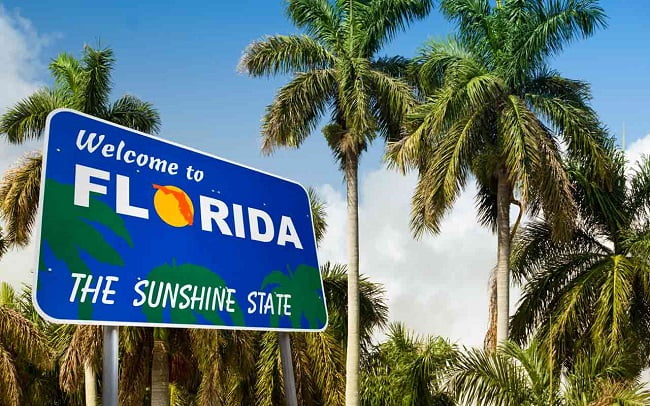Florida, Seminoles reach deal to extend casino revenue sharing

Florida, Seminoles reach deal to extend casino revenue sharing
BY Steven Stradbrooke ON April 19, 2018
TAGs: florida, Seminole Tribe
Florida’s state government has reached a new gaming deal with the Seminole Tribe, but a special legislative session on gaming issues appears to still be in the works.
On Wednesday, Florida Gov. Rick Scott announced that the state had extended its casino revenue sharing agreement with the Seminoles through May 2019. The agreement, which was signed in 2017, calls for the tribe to provide the state with around $300m per year in exchange for exclusive rights to certain gaming products.
Scott said the agreement “ensures the Tribe’s current commitment remains intact” but Scott stressed that Wednesday’s deal “does not make any changes to state gaming law or expand current gaming operations in Florida in any way.”
The 2017 agreement was itself a stopgap deal due to the inability of state legislators to approve a new gaming compact with the tribe, which operates the Hard Rock International family of casinos. Gov. Scott and the tribe agreed on a new gaming compact in 2015 but it was never ratified by the legislature, where competing factions have prevented forward progress on pretty much any subject related to gaming.
Florida has been wrestling with whether to allow the state’s cardrooms to continue to offer so-called designated player games, which the Seminoles maintain violate their exclusivity over house-banked card games. Also up for grabs is whether to authorize slot machines at certain racetracks and jai-alai frontons.
The state’s latest gaming expansion effort came up short in March but legislators have been pressing for a special legislative session to address unresolved issues. Legislators are keenly aware that the state’s voters will face a ballot question this November that proposes amending the state constitution to make future gambling expansion plans subject to securing the approval of 60% of registered voters.
Following Wednesday’s deal announcement, Florida Politics’ Jim Rosica quoted a source who claimed leaders in both the state Senate and House were “fully engaged” in ensuring legislators get one last crack at approving gaming expansion before the November ballot.
Speaking of, the division of Walt Disney Corporation that has been financially supporting a ‘yes’ vote in November continues to put its money where it’s mouth is. Financial disclosure forms filed by the Voters in Charge political action committee showed Disney Worldwide Services Inc contributed $4.7m to the cause, representing roughly 70% of the group’s total financing.
Disney has been funding anti-gambling expansion campaigns in Florida for years, based on its apparent belief that commercial casinos would taint its family-friendly DisneyWorld theme park in Orlando. To be fair, it isn’t just Florida where Disney has an anti-gambling bent. The company has also forced slot machine developers to scrap titles based on Disney’s intellectual property.
Relevant news

Roaring 21 Casino Review
See the best cryptocurrency casinos Roaring 21 Casino Overview: Roaring 21 comes from probably THE…

Detroit casinos set all-time gaming revenue record in March
Detroit casinos set all-time gaming revenue record in March BY Peter Amsel ON April 13,…

Slot Machine Tips – The Basics
SLOT MACHINE BASICS You are reading this guide because you want to learn how slot…

SLOTS BONUS EVENTS
Bonus features are where much of the creative, interactive fun of slot machines is focused.…

888 Tiger Casino Review
The best just got better, 888Tiger Casino used to have a great reputation but they…

Roaring 21 Casino Review
See the best cryptocurrency casinos Roaring 21 Casino Overview: Roaring 21 comes from probably THE…

Detroit casinos set all-time gaming revenue record in March
Detroit casinos set all-time gaming revenue record in March BY Peter Amsel ON April 13,…

Slot Machine Tips – The Basics
SLOT MACHINE BASICS You are reading this guide because you want to learn how slot…

SLOTS BONUS EVENTS
Bonus features are where much of the creative, interactive fun of slot machines is focused.…

888 Tiger Casino Review
The best just got better, 888Tiger Casino used to have a great reputation but they…

